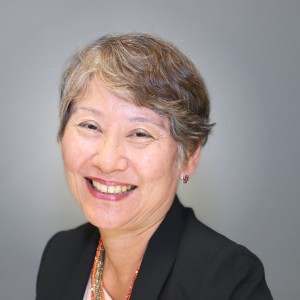 If you make well-meaning, generous, happy to help contributions day in and out at the office and it goes without recognition or reward, do you make a sound? When it comes to your career, probably not. The truth is when it comes to both moving up and looking after yourself, too much helping might be hurting.
If you make well-meaning, generous, happy to help contributions day in and out at the office and it goes without recognition or reward, do you make a sound? When it comes to your career, probably not. The truth is when it comes to both moving up and looking after yourself, too much helping might be hurting.
In a recent New York Times article, Sheryl Sandberg and Adam Grant write, “This is the sad reality in workplaces around the world: Women help more but benefit less from it.” After all, there’s a difference between leaning in and being leaned on.
Why We Help
Sandberg and Grant are quick to note that gender stereotypes are at play in creating expectations for women to “pitch in” thanklessly for the team: “When a man offers to help, we shower him with praise and rewards. But when a woman helps, we feel less indebted. She’s communal, right? She wants to be a team player. The reverse is also true. When a woman declines to help a colleague, people like her less and her career suffers. But when a man says no, he faces no backlash. A man who doesn’t help is ‘busy’; a woman is ‘selfish.’”
So it’s no surprise that Law Professor Joan C. Williams, author of What Works for Women at Work: Four Patterns Working Women Need to Know, says that for women, “Saying no without seeming touchy, humorless or supremely selfish is a particularly tricky balancing act.” Women continue to be left “holding the mop”, in the words of Senator Elizabeth Warren, for men in the office. Blogging on leadership, Williams defines office housework as:
“the administrative tasks, menial jobs, and undervalued assignments women are disproportionately given at their jobs.”
“Someone has to take notes, serve on committees and plan meetings — and just as happens with housework at home, that someone is usually a woman,” says Sandberg and Grant.
What happens when a woman says no? A study on altruistic behavior led by NYU’s Heilman tested how male and female employees would be evaluated based on choosing whether to stay late for an important meeting. A man was rated 14% more favourably than a woman for staying and helping. A woman was 12% more negatively than a man for declining.
It’s the equivalent of the “awww” factor daddy gets but not mom when he carries around the baby, and it’s unequally rewarded. Sandberg and Grant state, “Over and over, after giving identical help, a man was significantly more likely to be recommended for promotions, important projects, raises and bonuses. A woman had to help just to get the same rating as a man who didn’t help.”
If you’re finding yourself disproportionately engaged in leading mentor programs, coordinating the interns, taking notes, heading up thankless committees and special side initiatives, ordering the sandwiches, volunteering to stay late, and spending time behind the scenes coaching, you are helping organizational success according to many studies noted in the NYT article.
But the question is at what price to your career and to yourself?
Hindering Your Career
The NYT article stated, “Studies demonstrate that men are more likely to contribute with visible behaviors — like showing up at optional meetings — while women engage more privately in time-consuming activities like assisting others and mentoring colleagues.”
Behind the scenes help is valuable, but when it’s mostly women who are carrying the time and effort commitment on low-valued, low-visibility work, who is free to step up to the high-value, high-visibility opportunities?
“The person taking diligent notes in the meeting almost never makes the killer point,” Sandberg and Grant write in the NYT. And Williams asserts in the Washington Post, “We have to get women out of office housework and onto more projects that really matter, both to them and to their companies, if we want more women to be successful in reaching positions of influence.”
Sacrificing Yourself
Williams writes, “Women are often asked to play the selfless good citizen…by taking on assignments that men don’t want or that the organization doesn’t highly reward.” But what happens when women act selfless, or out of our need to be dutiful or helpful, is we too often neglect ourselves.
Women are more likely to feel burned out at work when it comes to emotional exhaustion, according to an analysis of 183 different studies across 15 countries. According to another study, women’s focus on and involvement with others to the exclusion of taking care of their own self can cause stress and depression underneath.
Being helpful can create personally rewarding interactions, but women need to be careful that they’re not exhausting their own energy and resources while colluding with multiplying expectations upon themselves.
If your identity becomes locked up in being the helpful one, which your gender already infers, then it becomes an expectation you serve and reaffirm. When out of balance, being of service to others at the workplace can mean being of dis-service to yourself.
A Mindset Change
Sandberg and Grant suggest that organizations should chose to value, track, and recognize acts of helping, as well as address the imbalance in assigning this work. They also suggest men could step up to contribute their share and help vocalize the unsung contributions.
In the meantime, they suggest breaking free of the cycle of mop-holding comes down to women, to you: “For women, the most important change starts with a shift in mind-set: If we want to care for others, we also need to take care of ourselves. One of us, Adam, has conducted and reviewed numerous studies showing that women (and men) achieve the highest performance and experience the lowest burnout when they prioritize their own needs along with the needs of others. By putting self-concern on par with concern for others, women may feel less altruistic, but they’re able to gain more influence and sustain more energy. Ultimately, they can actually give more.”
The NYT article pointed out an exec who found more efficient ways – such as a FAQ manual – to address requests for help, as well as caring ways to decline over-stretching. Only then did she make partner. You can be as giving, caring, and considerate in how you say no to others while recognizing your needs and limits as you can be in saying yes.
Women are quick at helping, and it’s part of the path to success, but that doesn’t mean we have to shoulder all the under-valued work at a cost to ourselves.
Perhaps we need to qualify Sandberg’s call-to-action: Lean in, but don’t be leaned on.
By Aimee Hansen









